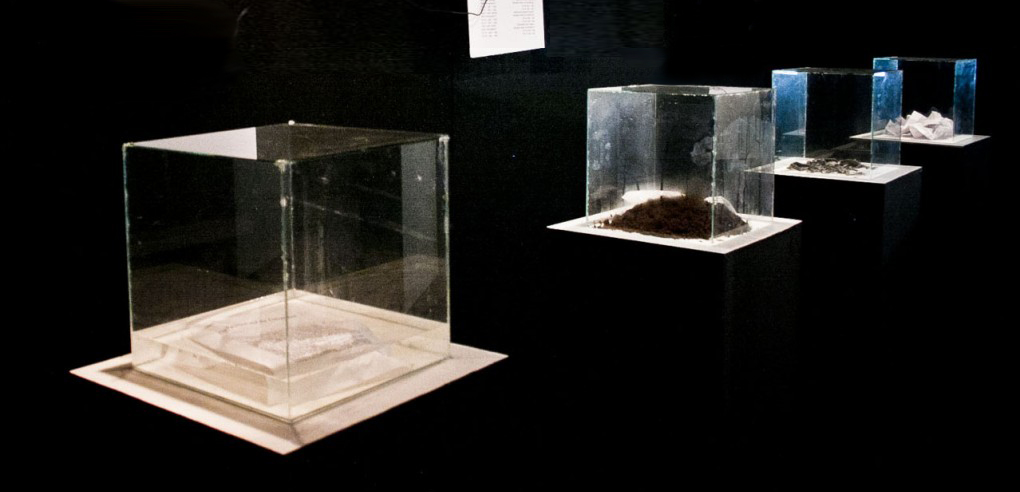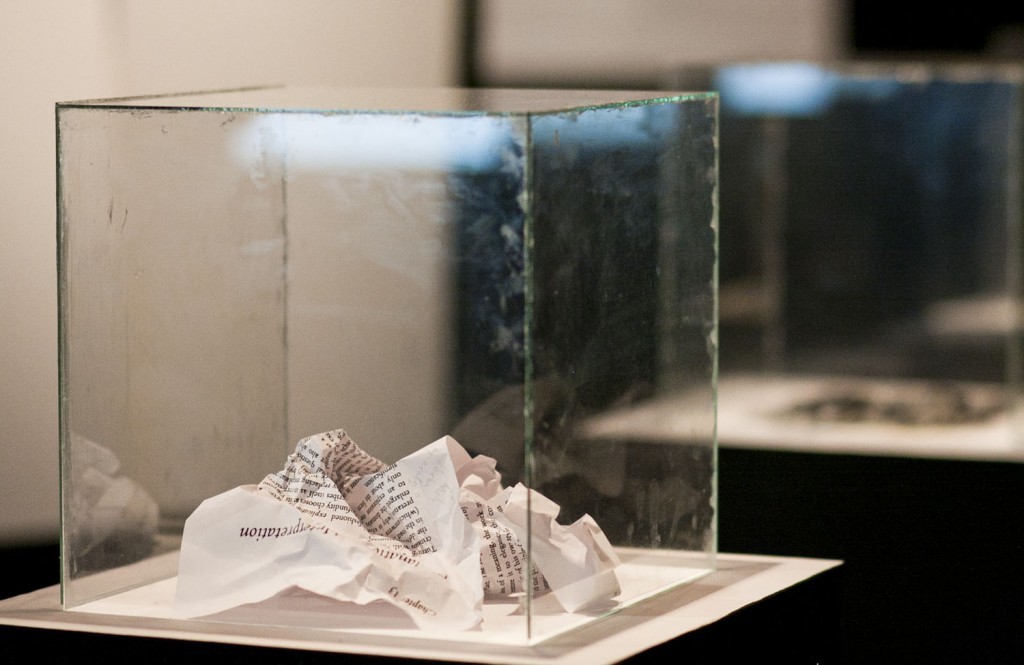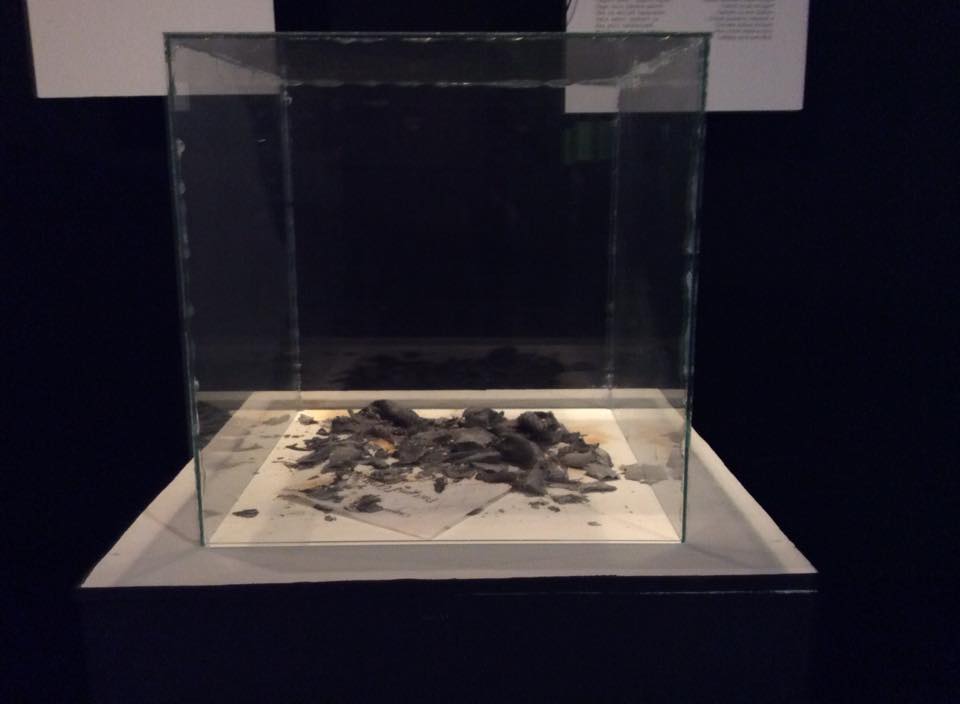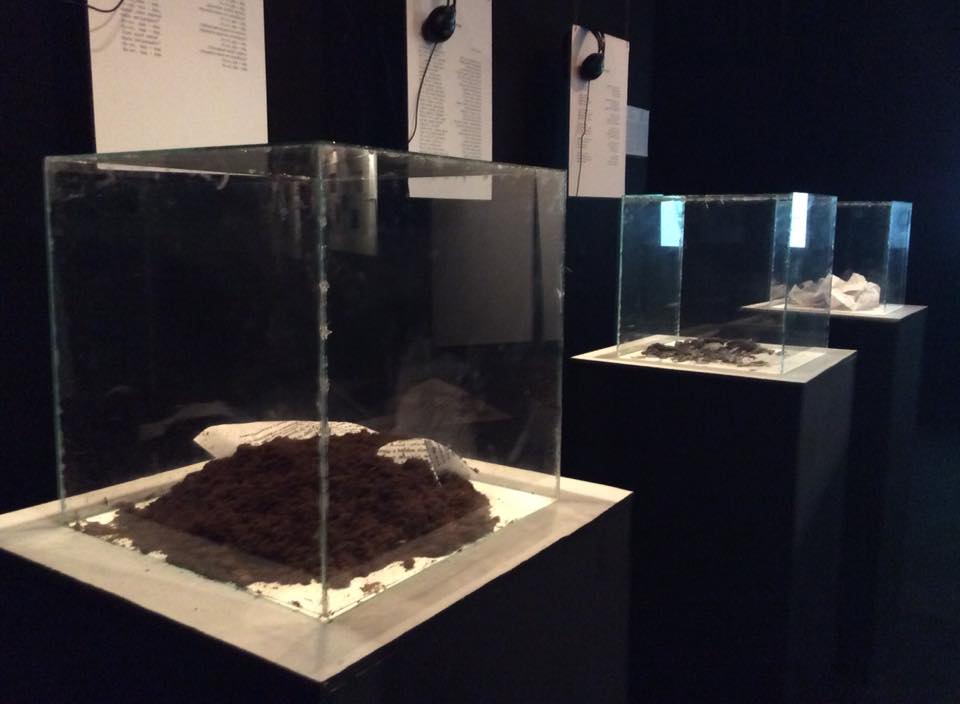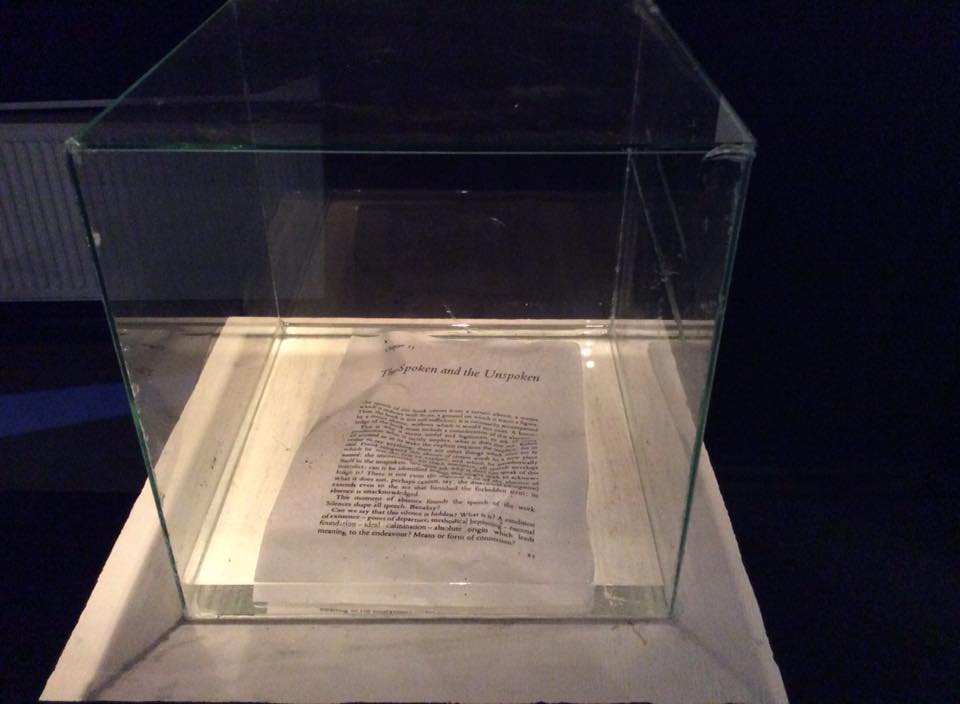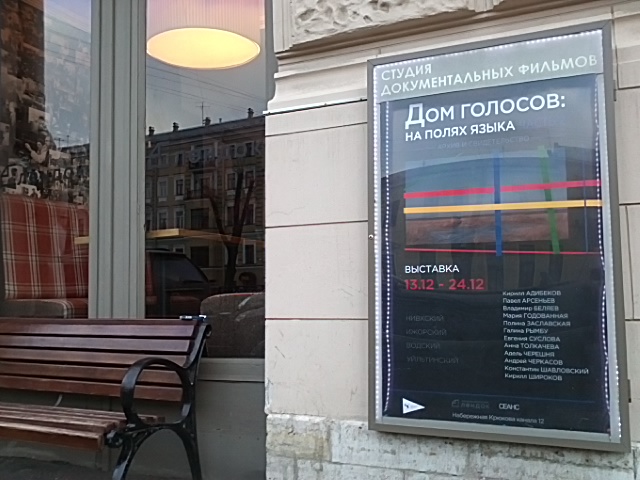For over 10 years, Pavel Arsenyev has been actively involved in the literary process of St. Petersburg and Russia as a poet, artist, theoretician, and critic. For the past two years, he has been doing this all while abroad. We discussed with Pavel the peculiarities of contemporary art, the specifics of research and trends in contemporary poetry
By Aleksandr Manuylov
Photo Daniil Rabovsky
Venue Workroom on Marata st.
AM Pasha, you are simultaneously engaged in art and science. Is it difficult to switch cases?
PA In order to measure the complexity of switching between the cases of science and art, you must first clarify how their “keyboard layouts” differ. If art is a kind of careless way of life; canvases and bottles scattered around the workshop, and science is a cabinet activity, accompanied by glasses and a bald head, it would be almost impossible to switch between them. However, it seems to me that both of these areas are a betrayal of something, which is actually whole, and it is in our power to resist its disintegration into isolated specialties. Nietzsche called for “gay science” (Le gai savoir), and Marcel Duchamp spoke about the art of thought (cosa mentale), and it seems to me that these cross ideals could be used as guides. On the other hand, switching cases is a consequence of some institutional fate. If you were born into a professor’s family and you have been “prepared for a career” all your life, of course, you should not swim beyond the buoys or you will not succeed in it anyway. In the same way, the world of art observes its borders; it is not recommended to study science or even literature, although you still make suprematist compositions for avantgarde or publish abstruse verses on wallpaper, it does not really matter. None of these autarkies suited me entirely. In my first year at the university, I began to publish a hooligan literature magazine, which since then has not yet ceased in transforming and deforming my trajectory, and is therefore difficult to perceive as “academic”. In literature and art we are, as Nadia Tolokonnikova once expressed herself, as “guys of the discourse”; that is, boring. This confuses the “control commissions” in both domains, but allows you to generate an original trajectory without interfering with cathedral meetings or commercial galleries. Once, an American Slavonic scholar and avant-garde researcher, who obviously had some kind of jealousy for such institutional behaviour, asked me directly, “Pasha, how much can you stagger around all these international conferences? When will you defend your thesis?” I answered “but I will not defend myself. I will attack. That is what I have been doing since then.
AM How comfortable are you as a creative individual in the nobrow era?
PA As it should have been clear from my previous remark, it is not very interesting for me in any “brow era” if activities are separated according to their specialities and demolition of boundaries is not possible. However, this is rather a horizontal dimension of relations between different institutions. As for the vertical dimension of hierarchy of “cultural quality”, then it seems to me as suspicious as a clear disciplinary affiliation. To write a good or bad novel is not at all the same as introducing new rules for utterance, or, as Arkadii Dragomoshchenko called it, “a different logic of writing”. To satisfy the expectations of the institution is not at all the same as to dispute its functioning or to establish parallel systems — on its borders, on top of or in spite of them. It seems to me that both the institutions of universities and art museums should be surrounded (and captured at the right time) by some schizophrenic groups. In any case, for me, having deliberately lost institutional time and developing a certain anti-disciplinary consciousness, the wisest thing is to continue the production of counter-knowledge, using the minimum institutional disguise (which unnamed Western universities provide) and to be simultaneously on the field of literary war and theoretical explication. AM There is still an established model in the scientific world: a Russian intellectual, in the field of humanities, who travels abroad to teach the history of Russian literature and language. You are a theorist of literature, so you have a much wider horizon of scientific opportunities. What is your scientific research based on? PA Yes, of course, the problem of such an established model exists and very often, avoiding one institutional triviality, we are faced with the danger of another — since we are talking about “run-away” intellectuals and writers. Here it is worth considering both historical examples of such a trajectory (associated, of course, with anti-bolshevik emigration), and the synchronous context of such a decision (existing in the wake of the defeat of the Bolotny protests). In my case, ignoring the institutional boundaries and the rules of conduct within the city and the language eventually should have made me try to spread this logic geographically and linguistically. This idea of crossing linguistic and state borders, with the same ease as disciplinary borders, probably also arose from the revolutionary 20s. We become infatuated with the charm of writing poems and articles about historic dates and places; also, the study of classical texts of “Russian theory”, as Jacobson called it. One reads The Resurrection of the Word, and understands that sometimes these philological science texts originated from a cabaret. One will learn about the “shift” and understand that the creators of the concept themselves were in constant flight from raids and occupation.
AM Back to the literature. In your opinion, how similar are the literary processes in Europe and the USA, compared to what we see in Russia? In addition, can you name your latest book Reported Speech a representation of contemporary Russian poetry?
PA My latest book of poems, Reported speech, was published in New York (Cicada Press, 2019), and the previous book, Spasm of Accommodation, was published in California (Cummune Editions, 2017). It provides the basis for my ironic qualifications as an American poet, if we consider the place of publication as the main criteria, and not the language of writing. This is a non-trivial, or rather, in the words of the publisher, a scandalous fact; given the current institutional rootedness, discussed for almost 15 years in a literary and theoretical journal in St. Petersburg, considered “independent”, or, in old terms, “self-published”. These modern forms of self-publishing makes one think of the history of Russian-American “poetic” geography. For example, Arkadii Dragomoshchenko’s poems provoked more intense discussions within the school of language than within local post-acmeism, which seemed rather unexpected. Today this unifies the young poetic generation. 30 years ago, knowledge of national poetry remained an important cultural privilege on either side of the ocean, however, today poetry is more likely to be a subculture, something like comics, and at the same time is subject to globalization. Presently, poetry holds a place in the global network of subcultures and ceases to be an exclusively national or sophisticated subject.
AM How does the language environment affect you and your texts in this situation?
PA It would be impossible to escape completely from the language itself, as well as from one’s hometown; you continue to think in it. Finally, since we are talking about a specific hometown, we can note important changes in behaviour in writing and in literary reality among the people from that place. Today the institutional time of mainstream-poetry is speeding up, and the trajectories of its academic reception are becoming more complicated. Leningrad-style manuscripts rescued in ark-like suitcases during war and blockade, and which relocated through emigration over the ocean, underwent significant modifications with time. The same modifications occurred to anthology as a genre derivative of such ark-like suitcases. The mass-produced suitcases of poeteditors and performance poets are simply bringing in a new and modified issue from across the ocean to demonstrate new works at the next international conference, replace any poet who has left the city with his own suitcase of manuscripts. Speeding up of intra-poetic metabolism resonates with the inter-institutional compaction of subjectivity. The refusal of institutional monomania (“to be a poet and only”) in many respects results in getting rid of lyricism and mastering other writing/recording strategies, which is stated in the title of the book Reported speech.
AM Pasha, how do you understand the term «contemporary art”? What do you consider as relevant? At the same time, what do you think of protest art and, in a certain sense, export Russian actionism?
PA There is some etymological connection between contemporary and actionist art, but the spirit of the present has obviously left the genres that are actively flowing in the fresh air. It must not be considered a failure or as the last stage of the decomposition of art; it will still decompose for a long time and it remains interesting. It has already happened more than once. After the productions of The Storming of the Winter Palace and The Monument to the Third International from the war-communism times comes the “capitulation” of more specialized and specific art from the New Economic Policy times. Now, among its examples, we can list the most radical cases of the avant-garde, such as photomontages, biomechanics, and the literature of fact. As is clear from the above analogy, I believe that today, after a heroic splash of art on the streets, a more or less successful increase in the overall degree of violence and the flourishing of political (h) activism, the time has come for accountability, reflection and archiving. Despite the fact that it does not return to a dusty library file cabinet, it exists today in a new interactive and polemical form. Discussions surrounding activist-art taking to the streets, utilitarian non-conformism, aesthetic resistance and “stylistic differences with the regime”, arose when it entered social production in 2010 and again after the protest mobilization in 2012. Artistic practices have shifted from an offensive strategy towards a defensive strategy, which result in protracted positional wars and attain their long-term impacts from the “reaction time”. This new state of siege has become a sort of stagnation, a specific late-Soviet chronotope in which “everything should be done slowly and wrong”, or “there is time, but there is no money and there is no one to visit”. Recognizable kinematics also follows from these temporal and spatial intuitions; the current state of the cultural movement tends to go from dissolution to stagnation, from waste to accumulation, from blurring borders to diligent design. This logic of accumulating critical mass, resistance skills, and, of course, the symbolic capital necessary to strengthen autonomy, in turn, dictates a compensatory sense of the era and cultivates sensitivity to the arguments of the “court of history” and the good faith of the “future researchers», and not to possible pragmatic interactions here and now.
AM How do you see Petersburg from the outside?
PA I never thought about this and did not “build relations” with the city. I did not choose which island to go for dying, yet I somehow gravitated towards renting accommodation in Vosstaniya Square: Grechesky prospect, Bakunina and Marata street, Kuznechny alley. Therefore, it was always easier for me to get to Pushkinskaya Street and Borey Art Centre (and later to the Andrei Bely Centre) than to the university. Yet at the same time, the city has never been a mythological poem, but a “machine for life” and the deployment of strategic manoeuvres. The main production traffic was unfolding around Vosstaniya; our publishing house has been located on Obvodny canal for about 10 years, and these self-published products were sent from Moskovsky railway station with friends to other cities. However, with the move, something really changed. Firstly, I left the city in the autumn of 2017 and I remember how barricades began to appear on the Palace Street, of course, those encircled by a tape to indicate production shootings. I sighed in the tiring mythology of my hometown, as in a long-dead love, and confidently headed for Pulkovo. In other words, from the moment I left Petersburg, it began to turn into some kind of fictitious construction, albeit with rather poor decorations and props. Secondly, in Geneva, I began to attend seminars on the unofficial poetry of the city in which I once lived. Despite the fact that I could not learn anything new from them, I visited them for the pleasure of shifting the language angle to a familiar object, which sometimes made it possible to clarify something about my own trajectory, which remained somewhere there, “outside the period”, but clearly belonged to the continuation of this “unofficial” story. As Elena Tager wrote, “But we survived, we are alive, we are a fact, and we will have to bother with us.” Perhaps with my “years of study” I even turned my years of “literary practice” into a stage of preliminary collection of ethnographic material on the material history of literature. Yet, after this seminar, I concluded that being, so to speak, hailing from the Leningrad branch, I have a theoretical, not to be confused with memorial, interest rather in the Moscow conceptualist tradition, for some safety reasons. Otherwise, after a few years, I would have had to «mess around» with the members of his editorial board. Therefore, when I return, sometimes I feel that this happens in post mortem mode. Of course, this gives the opposite effects of “presenting yourself to others in a past life”. I find myself in a strange sense of time, which has turned out to be narrative, and homelessness which has become methodological. After the loss of a certain stable living space, you begin to equip it in writing and from the distance to which we are grammatically related. The breaking of ties with the environment, the failure of production cycles inevitably provoke a memorial heresy. However, in my case, geographic emigration is balanced by an epistemological one: acquired research optics is such an irreversible operation on vision and habit that deprives a simple and intelligible sense of the moment, but allows one to “consider it historically”.
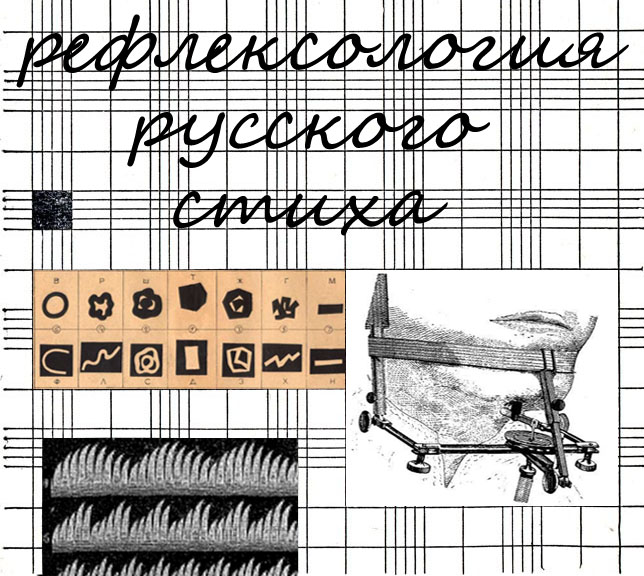
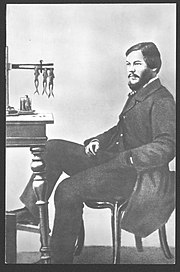
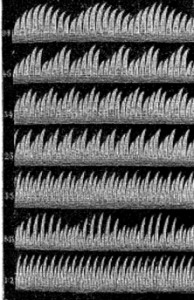

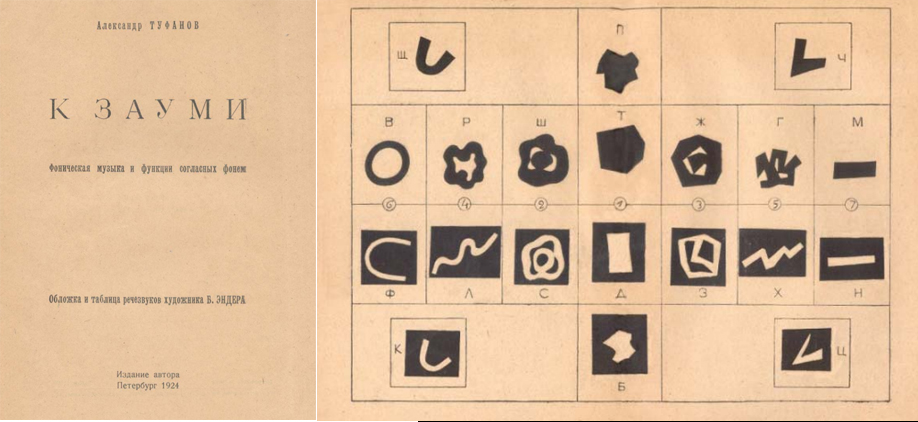

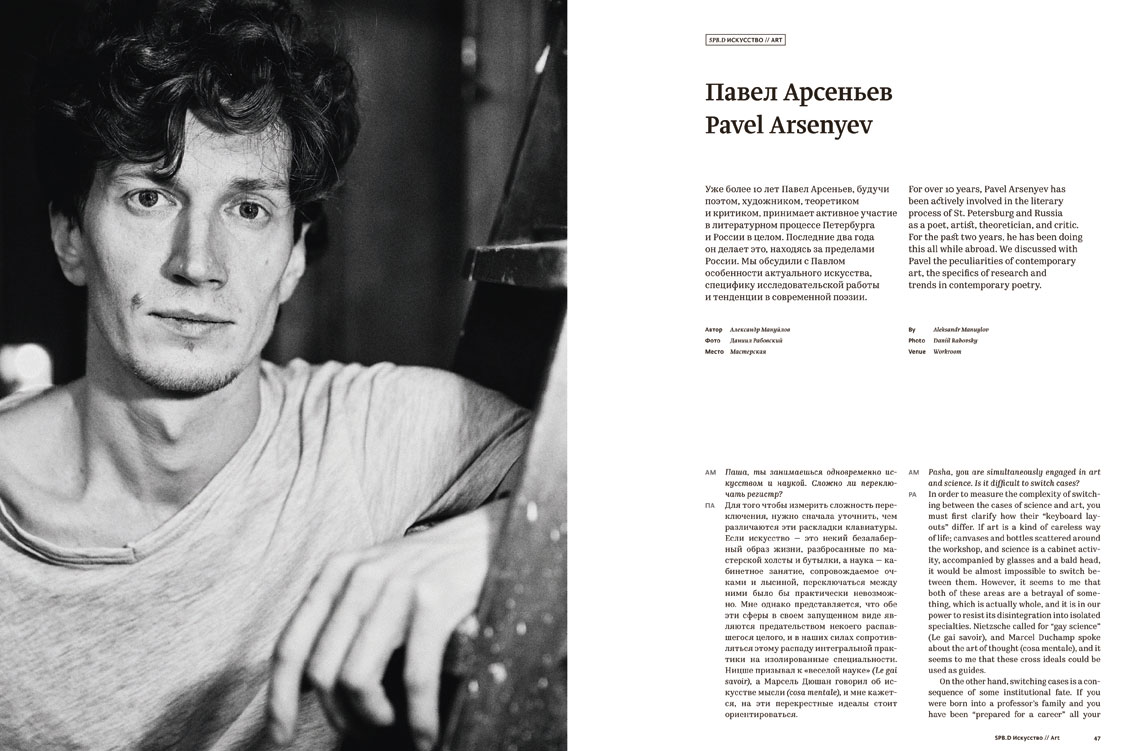

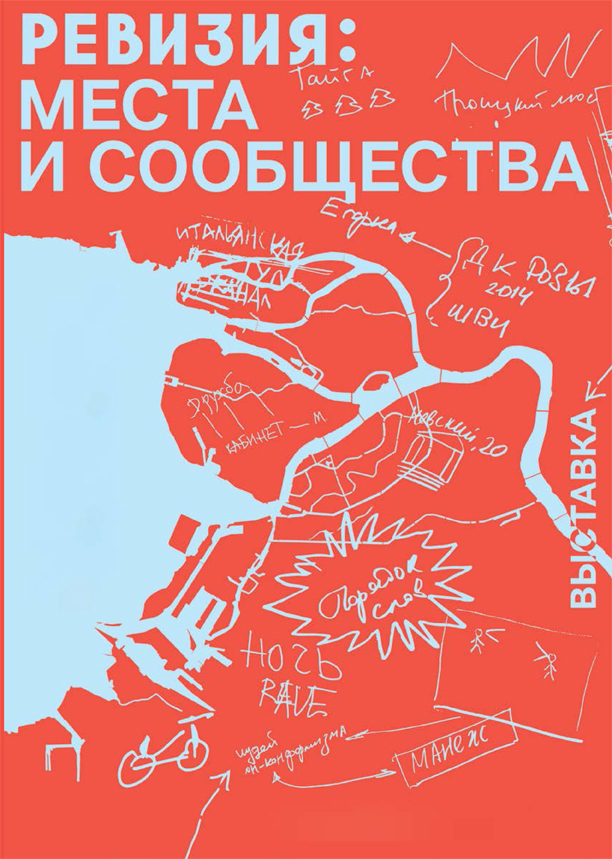


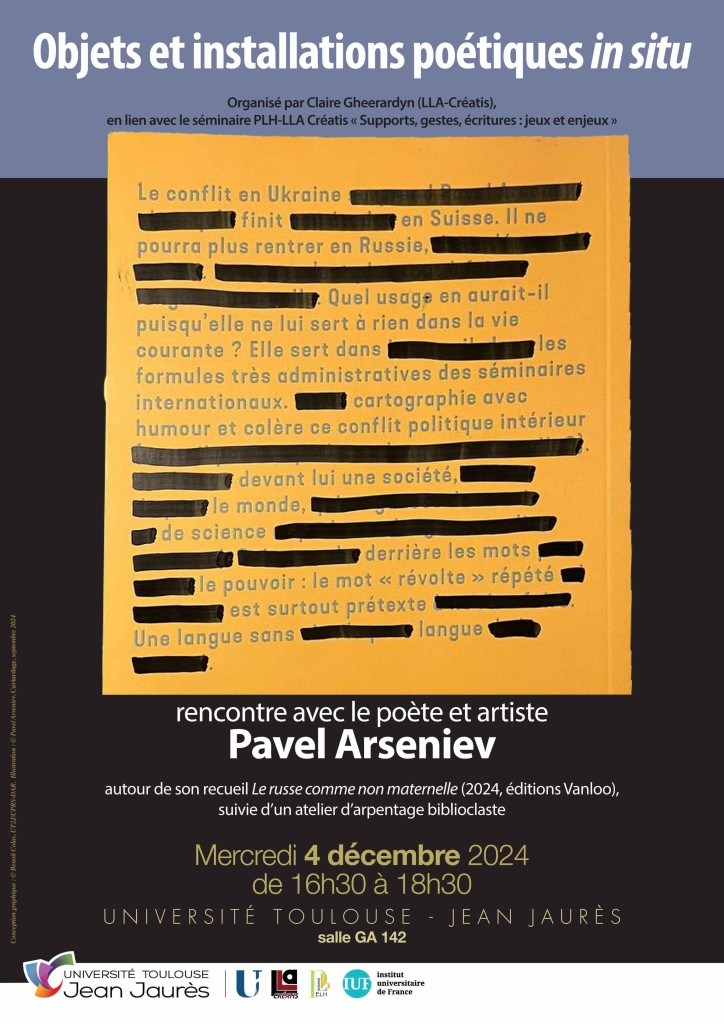 4 décembre,
4 décembre, 